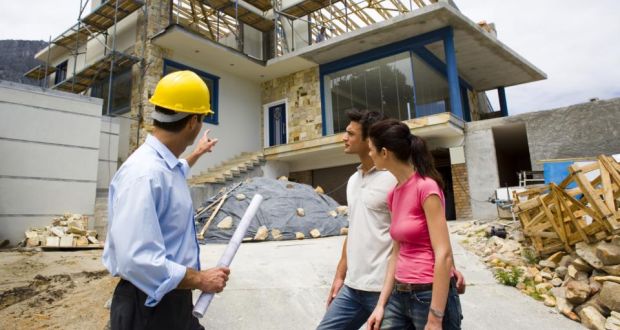
Homeowners often struggle with the dilemma of whether to renovate an existing home or build a new one. It is a tough decision and one that requires consideration of many factors, not just cost alone. There are many intangible factors to consider as well.
We will begin with everyone’s biggest consideration, cost, and then move on to other factors that will influence your decision as well, such as neighborhood, historic value, home value, local regulations and convenience.
Costs
Depending on the extent of the renovations, major remodeling is usually much more expensive than new construction. You might be wondering why that is? For starters, when building a home from the ground up, you start with a clean slate: no hidden surprises in the walls, no remediation, no tearing down first to build up second. New homes minimize repair and maintenance costs because everything is new and up to the latest building codes and standards. Most older homes don’t meet today’s energy efficiency standards, which is money out of your pocket every heating and cooling season. Re-insulating the house’s structure is costly, as is changing out inefficient windows. New homes are more energy efficient because of new construction standards and more advanced building techniques and energy efficient materials.
On the other hand, during a major house renovation, the builder is forced to work with an existing structure. Old walls, doors, windows, cabinets, etc. must come out first, before new ones can be built or installed. And the challenge there is that you don’t really know what’s behind the wall. With remodeling you can count on surprises and surprises cost extra money. Any existing home problems you find (such as mold, asbestos, dry rot, etc.) must be remediated.
According to Remodeling Magazine, the average national cost in 2017 for adding a second story to an existing house is $176,108, a master suite addition averages $119,533, and a major kitchen remodel averages $62,158.
Needs and Desires
In addition to cost, consider what you and your family need and desire from a home, and whether those needs can be met by remodeling your current home. If you want to drastically expand the amount of square footage or change the floor plan, you may want (or need) to consider building an entirely new house. Some existing homes simply won’t afford the opportunity to add as much square footage as you’d like (such as finishing a basement or adding a second story) or change the lay out as you’d like. If you can add an adequate amount of square footage, remodeling may be the cheaper choice. Of course as with any major house renovation, the other factors below will come into play (zoning laws, cost, etc.).
Local Laws and Regulations
Residential zoning laws and regulations vary by county and city, and will have a large impact on your decision to either remodel or build new. Some neighborhoods will not allow new construction, but have liberal definitions of "remodel." Many counties require that you leave only a small part of an existing structure standing in order to qualify as a “remodel”. Individual neighborhoods / communities often have their own regulations as set forth in By-Laws or other documents that will need to be taken into account. These regulations are often designed to ensure new / remodeled homes will blend in with the existing community. Such restrictions can relate to anything from multi-story homes, to multi-family homes, and converting the garage into additional living space. Check local zoning laws and building codes before deciding to remodel any house.
Older Homes: Pros and Cons
If you live in a turn-of-the-century, Victorian home with historic charm, you probably will not be able to recreate that in a new construction home. If that is important to you, then remodeling may be the way to go. However, if you live in an older home without charm or historic value, you may choose to build a new house rather than remodel an older house. Down the line, a remodeled older house is still an older house, whereas one that is newly built can be marketed as recent construction with energy-efficient features and modern amenities and finishes.
Other Factors
Other factors will also come in to play in your decision to remodel or build new. For instance, if you like most aspects of your current house, or love your neighborhood and neighbors and don’t want to leave, then remodeling may be the best option for you. Your house's value in the context of its neighborhood is also important to consider. Real estate agents generally advise that your house should not be more than 10-15 percent of the median price of other houses in the neighborhood. If you add significant improvements during a remodel, you could drive the value of your house much higher than the others in the neighborhood, which can make it difficult to sell in the future.
If you find yourself struggling with the dilemma of remodelling an existing house versus building a new house, we might be able to help you out. Don't hesitate to contact us. We would love to hear from you!








